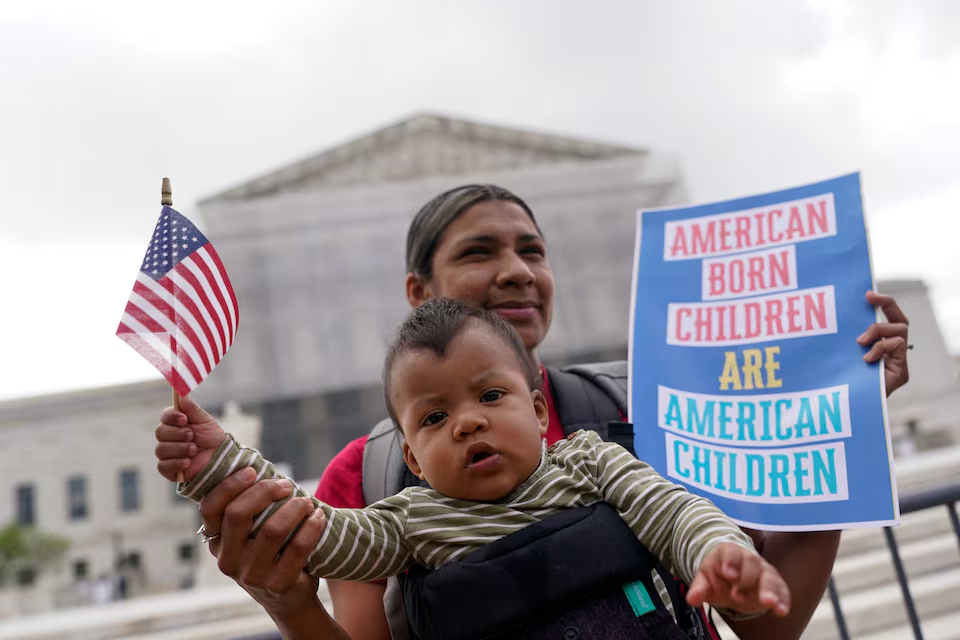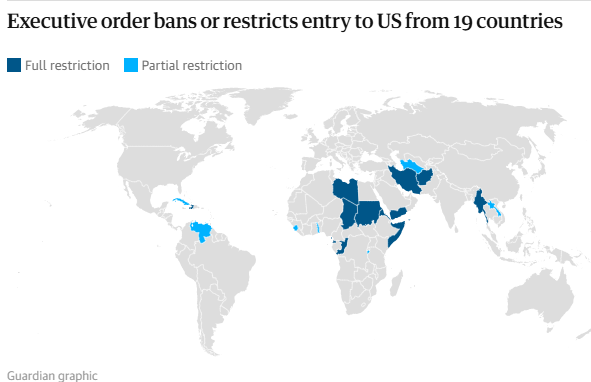The U.S. Supreme Court began hearings on May 15, 2025, to consider a contentious executive order issued by former President Donald Trump aimed at restricting birthright citizenship in the United States. The order challenges the long-established interpretation of the 14th Amendment, which grants automatic citizenship to nearly all individuals born on American soil. This case is poised to have significant implications on immigration law, constitutional interpretation, and the balance of power between the judiciary and executive branches.
Trump’s executive order, signed on his first day back in office earlier this year, proposes to deny U.S. citizenship to children born in the country unless at least one parent is a U.S. citizen or a lawful permanent resident. This represents a sharp departure from the current legal understanding, which recognizes birthright citizenship as an unconditional right, regardless of the parents’ immigration status.
The move has sparked intense legal battles, with several federal courts across the country issuing injunctions blocking the order’s implementation. Judges in Maryland, Washington, and Massachusetts ruled that the order likely violates the Constitution, particularly the Citizenship Clause of the 14th Amendment. These rulings prevented the executive order from taking effect nationwide, limiting its scope to the specific plaintiffs involved in the lawsuits.
In response, the Trump administration appealed to the Supreme Court, asking it to lift these nationwide injunctions. The administration argues that lower courts do not have the authority to block federal policies broadly, contending that such decisions should only apply to the specific cases at hand. This appeal raises critical questions about judicial reach and the limits of executive power.
Legal experts and civil rights advocates have expressed deep concern over the potential consequences of upholding Trump’s order. They warn that restricting birthright citizenship could render tens of thousands of children stateless each year, particularly those born to undocumented immigrants. The change could disrupt established legal precedents that have been in place for over a century and impact a broad range of immigration and civil rights issues.
Opponents argue that birthright citizenship is a cornerstone of American identity and legal tradition, ensuring equality and protection for all persons born within the country. They assert that altering this right through executive action bypasses Congress and threatens to undermine constitutional protections.
The Supreme Court’s conservative majority, which includes three justices appointed by Trump, is expected to play a decisive role in the case’s outcome. Observers anticipate a closely contested ruling that will define the boundaries of presidential authority and clarify the interpretation of the 14th Amendment.
The case has also ignited political debate across the country. Supporters of the executive order argue that it is necessary to address illegal immigration and reduce incentives for undocumented immigrants to enter the United States. They claim that birthright citizenship, as currently interpreted, encourages “birth tourism” and strains public resources.
Meanwhile, opponents emphasize that the 14th Amendment was explicitly designed to guarantee citizenship to all persons born in the U.S., regardless of their parents’ legal status. They caution that changing this principle would create a new class of stateless individuals, complicate immigration enforcement, and have long-lasting social and economic consequences.
The Supreme Court’s ruling is expected in the coming months and will likely set a precedent affecting future immigration policy and constitutional law. The decision will also signal how the Court views the balance of power between the executive branch and the judiciary in shaping immigration regulations.
As the nation awaits this landmark ruling, the debate over birthright citizenship remains a deeply polarizing issue. It touches on fundamental questions about national identity, legal rights, and the limits of government authority. The outcome will not only impact millions of lives but also shape the future of U.S. immigration policy for years to come.
Source; Reuters



